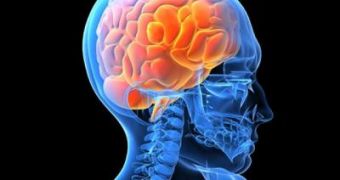Scientists writing in the journal Frontiers in Human Neuroscience say that, according to their investigations, there is a neurological basis for why psychopaths behave the way that they do.
The researchers argue that, unlike ordinary folks, individuals suffering from psychopathy are biologically incapable of feeling empathy. This is because the brain areas that control such emotional responses fail to activate.
Needless to say, this alters the psychopaths' affective processing and decision-making, EurekAlert reports.
In order to document the neurological basis for psychopathy, scientists have carried out a series of experiments on 121 inmates at a prison in the US.
As part of the investigation, the inmates were asked to look at pictures that showed either scenarios of physical pain (eg. a toe caught under a big and heavy object) or objects that were not in any way linked to pain (eg. a doorknob).
While the inmates were looking at these pictures, the researchers used functional magnetic resonance imaging (fMRI) to record their brain activity.
The inmates that had been previously labeled as highly psychopathic did not take lightly to the idea of having pain inflicted to themselves, yet they remained neutral to the idea of seeing others suffer.
Specifically, their anterior insula, the anterior midcingulate cortex, somatosensory cortex, and the right amygdala remained unresponsive.
Interestingly enough, their ventral striatum, i.e. a brain area linked to pleasure, fired up, suggesting that they quite enjoyed the thought of seeing other people in pain.
The researchers theorize that, since the inmates did respond to the idea of being in pain, the outcome of this investigation could lead to the development of new and more effective treatments for psychopathy.
“Imagining oneself in pain or in distress may trigger a stronger affective reaction than imagining what another person would feel, and this could be used with some psychopaths in cognitive-behavior therapies as a kick-starting technique,” they reportedly write in their paper.

 14 DAY TRIAL //
14 DAY TRIAL //